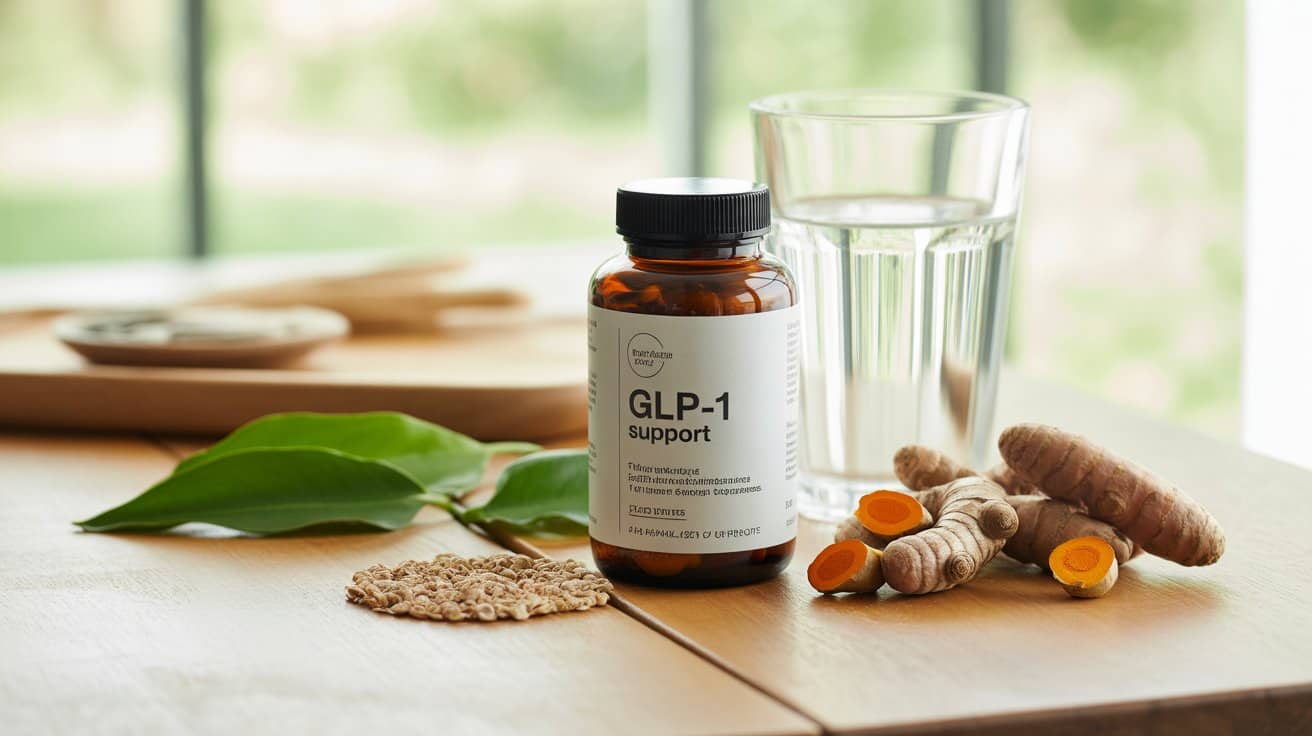Introduction
In recent years, GLP-1 has emerged as one of the most talked-about hormones in the health and wellness world. With the success of prescription drugs like Ozempic and Wegovy—both of which mimic the action of GLP-1—many people are now exploring natural ways to boost this hormone for weight loss, appetite control, and better metabolic health.
Enter natural GLP-1 supplements: a category of over-the-counter products marketed as a gentler, more holistic alternative to pharmaceutical GLP-1 agonists. But do they really work? And how do they compare to other weight loss aids? Let’s dive deep.
What is GLP-1?
GLP-1, or Glucagon-Like Peptide-1, is a hormone produced in the gut, specifically by the L-cells of the small intestine, in response to food intake. It plays several critical roles in the body:
- Stimulates insulin secretion to lower blood glucose levels
- Slows gastric emptying, making you feel fuller for longer
- Suppresses appetite by acting on the hypothalamus in the brain
- Reduces glucagon secretion, which keeps blood sugar in check
Due to these multi-targeted effects, GLP-1 has become a key player in diabetes and obesity management.
GLP-1 Agonist Drugs vs Natural Supplements
Prescription GLP-1 agonists like Semaglutide (Ozempic, Wegovy) and Liraglutide (Saxenda, Victoza) are synthetic versions of the hormone. These medications bind to GLP-1 receptors and mimic the hormone’s activity, offering powerful results for both weight loss and blood sugar control. However, they come with side effects (nausea, vomiting, pancreatitis) and a high cost—plus they require a doctor’s prescription.
By contrast, natural GLP-1 supplements do not contain the hormone itself. Instead, they contain plant-based compounds, fibres, and probiotics that may help your body produce more of its own GLP-1 or enhance the hormone’s signalling indirectly.
Natural Ingredients That May Boost GLP-1
Several natural ingredients have shown promise in increasing GLP-1 levels or mimicking its effects in the body:
1. Soluble Fibres (Psyllium, Glucomannan)
Soluble fibres delay gastric emptying and may promote GLP-1 secretion by fermenting in the colon and producing short-chain fatty acids.
2. Berberine
This plant alkaloid improves insulin sensitivity and has been shown in some studies to upregulate GLP-1 secretion. It’s also known for supporting metabolic health and weight loss.
3. Curcumin (from Turmeric)
Curcumin has anti-inflammatory properties and may indirectly promote GLP-1 activity by modulating gut microbiota and inflammation.
4. Probiotics & Prebiotics
The gut microbiome plays a significant role in GLP-1 production. Specific strains like Lactobacillus rhamnosus and prebiotic fibres can enhance endogenous GLP-1 output.
5. Herbal Extracts (Yerba Mate, Green Tea, Ginseng)
These adaptogenic herbs may influence hunger hormones and insulin sensitivity, supporting natural appetite control and energy balance.
Do Natural GLP-1 Supplements Work?
The evidence is promising but not yet conclusive. Many of the supportive studies are:
- Small-scale human trials
- Animal studies
- In vitro experiments
While results suggest certain ingredients can stimulate GLP-1 or mimic its effects, these supplements are not a substitute for prescription medications like semaglutide. Their effects are likely milder, slower, and highly dependent on dosage, individual response, and lifestyle factors.
Comparison Table: Natural GLP-1 Supplements vs Other Popular Weight Loss Aids
| Supplement Type | Key Ingredient(s) | Primary Mechanism | Appetite Control | Blood Sugar Support | GLP-1 Stimulation | Clinical Evidence | Typical Side Effects |
|---|---|---|---|---|---|---|---|
| Natural GLP-1 Supplements | Berberine, Fibre, Curcumin | Boost endogenous GLP-1, slow digestion | ✅ | ✅ | ✅ | Moderate (early) | Mild GI discomfort |
| Fat Burners | Caffeine, Green Tea Extract | Thermogenesis, metabolic rate boost | ⚠️ | ❌ | ❌ | Moderate | Jitters, insomnia |
| Carb Blockers | White Kidney Bean Extract | Inhibits carb absorption | ❌ | ⚠️ | ❌ | Low | Bloating, flatulence |
| Appetite Suppressants | 5-HTP, Saffron Extract | Affects brain serotonin levels | ✅ | ❌ | ❌ | Limited | Mood changes, GI issues |
| Prescription GLP-1 Agonists | Semaglutide, Liraglutide | Mimic GLP-1 hormone | ✅✅ | ✅✅ | ✅✅ | Strong | Nausea, risk of pancreatitis |
✅ = Effective | ⚠️ = Partial/Context-Dependent | ❌ = Not Applicable
Who Might Benefit From a Natural GLP-1 Supplement?
- Individuals with mild insulin resistance
- Those looking for non-pharmaceutical weight loss support
- People seeking appetite control without stimulants
- Anyone aiming to improve gut health and metabolic flexibility naturally
However, results vary, and these supplements are not suitable for managing advanced obesity or diabetes without medical supervision.
Cautions and Considerations
- Lack of regulation: Many natural supplements are not clinically tested for efficacy.
- Interactions: Can interact with blood sugar-lowering medications.
- Variable quality: Purity, dosage, and standardisation differ between brands.
- Medical advice essential: Especially if you’re diabetic or taking prescription GLP-1 agonists.
Conclusion: Should You Try a Natural GLP-1 Supplement?
Natural GLP-1 supplements represent a promising, gentler alternative to prescription GLP-1 medications. While they don’t match the clinical strength of semaglutide or liraglutide, ingredients like berberine, fibre, and probiotics may support healthy GLP-1 function, appetite regulation, and glucose balance—especially when combined with a clean diet and exercise.
If you’re considering trying a natural GLP-1 supplement for weight loss, always check with your doctor or dietitian to ensure it’s a safe and suitable option for you.





